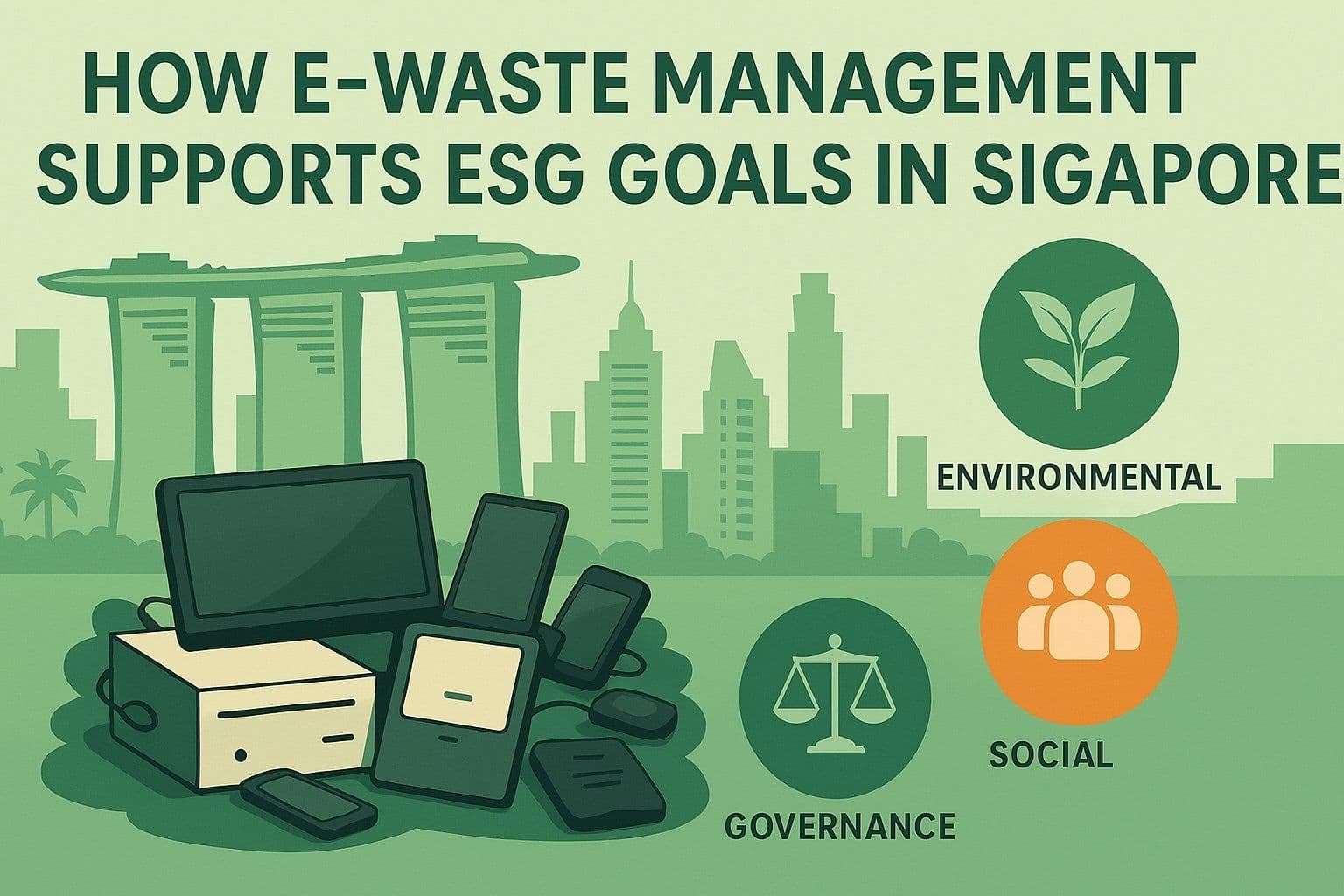
You might have noticed that terms like ESG and sustainability are popping up everywhere these days. From casual conversations to serious business meetings, everyone is talking about being more responsible. ESG stands for Environmental, Social and Governance, and it is becoming a core part of how companies measure their impact.
But where does e-waste fit into all of this? And why should businesses and individuals in Singapore pay attention to it?
Let’s explore how something as simple as recycling your electronics can make a big difference.
E-waste refers to electronic items that are no longer in use. These can include old laptops, phones, tablets, printers, and chargers. When we dispose of them carelessly, they release harmful materials into our environment. Substances like lead, cadmium and mercury can pollute our soil and water, posing a threat to public health.
Proper recycling helps reduce this harm. It is a practical way to support the environmental aspect of ESG.
Beyond environmental benefits, e-waste is also a matter of social responsibility. When businesses handle their electronic waste properly, they protect not only the environment but also the people who work in recycling and waste management.
It shows care, responsibility and commitment.
This also builds trust with customers, employees and the wider community. In a country like Singapore where people value transparency and action, that trust can set a business apart.
Governance is about how a company is run and whether it follows the rules. In Singapore, the National Environment Agency (NEA) has introduced regulations to ensure that electronic waste is managed correctly. This is part of the Extended Producer Responsibility (EPR) program, which puts the responsibility of recycling on producers and retailers.
Businesses that comply show they are accountable, serious and future-ready.
It also reduces risks and avoids penalties, while giving investors confidence.
A recent article by the World Economic Forum shared how ESG is no longer just a trend but a financial necessity. As companies improve how they report sustainability and as investors look closely at ESG performance, companies that ignore it may fall behind.
“Organizations that overlook ESG will soon be considered financially out of touch”
You can read the full article here
Whether you’re a consumer, a business owner or an investor, ESG affects your decisions.
Singapore’s Green Plan 2030 is leading the push for a greener future. E-waste recycling is a key part of this vision. Companies that take action now will be better prepared, more respected and aligned with national goals.
At KGS, we help businesses and communities recycle e-waste in a safe, secure and sustainable way. If you’re ready to improve your e-waste management or have questions about how to get started, reach out to us here.
Let’s take small steps together toward a more sustainable Singapore.
Sign up for exclusive offers, events and more.